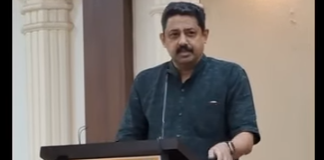EXECUTIVE SUMMARY. With the Reserve Bank of India (RBI) imposing a penalty of Rs 100 mn (US$ 1.4 mn) on HDFC Bank, the curtain has finally come down on the considerable irregularities (in around 2014-2019) in the bank’s automobile loan division. After verifying a whistleblower’s tweets (June 17, 2020), this analyst highlighted (on July 4, 2020) the unusual departures of two senior HDFC Bank executives, one of whom was in-charge of automobile loans, and exposed the complete lack of transparency by the bank on their exits. Even though the whistleblower tagged prominent banking editors in the media in his initial tweets, they refused to pursue the story. It was only when Bloomberg ‘broke’ the news (July 13, 2020) that the story got traction in the media and the RBI launched its investigation. There are many lessons to be drawn by stakeholders from this episode.
- Normally, when a regulator finds a violation, it calculates the gains derived from such operations and the monetary penalty is a multiple of the illegitimate gain, to deter such activity in the future. It is difficult to believe that over the course of 5 years the bank made gains of less than Rs 100 mn on this practice. Thus the RBI has levied a pittance of a penalty on HDFC Bank.
- The bundling of the Global Positioning System (GPS) device with the automobile loan was approved by the bank, which received a commission for each sale. Hence it was not the work of errant junior bank officials. This indicates that senior bank officials were to be held responsible for approving and facilitating the sale of a non-financial product by the bank in violation of Section 6(2) of the Banking Regulation Act, 1949 (BRA).
- HDFC Bank had poor compliance and vigilance controls which overlooked for some years the fact that bank officials in the automobile loans department were being incentivised by Trackpoint GPS Pvt. Ltd., a third party, for meeting sales targets and selling its GPS in contravention of Section 10 of the BRA.
- High performers, especially direct reportees to the CEO, need to be carefully monitored for compliance. HDFC Bank has to look into the role of Ashok Khanna, former Group Head, Automobile Loans (directly reporting to then CEO, Aditya Puri). How could Khanna have been unaware of the irregularities in his department which he headed for many years, and why did the board of directors grant him annual extensions after the bank’s official retirement date for staff? (He finally retired/was denied further extension on March 31, 2020.)
- Regardless of the pedigree of the company and its Chief Executive Officer (CEO), stakeholders must question and assess the claims of the senior management and demand more transparency from the company.
- Stakeholders and the regulator must pay attention to whistle blowers and look into their claims.
- The sentinels of the ‘free-market’, namely, the business media, sell-side and credit rating analysts are unlikely to take the lead in investigating the claims of whistle blowers when it pertains to prominent companies and their ‘iconic’ CEOs.
- Bank customers who have been mis-sold products are unlikely to get any relief from the banking regulator.
- The class action suit filed in the United States of America will be strengthened by the RBI’s penalty on HDFC Bank for the irregularities in its automobile loan division
- RBI’s penalty on HDFC Bank, and the regular updates by the whistleblower, indicate that stakeholders should look beyond a premium valuation on the capital market, consistent growth in earnings and superior asset quality (“best in class”) to evaluate the quality of a company. The fact that the regulator itself has credited the whistleblower complaint lends considerable weight to the whistleblower in question, whom HDFC Bank had tried its best to discredit.
Aditya Puri (the previous CEO) had a history of compliance issues, and the irregularities which took place under his watch were grave. Despite this, one hopes that Sashidhar Jagdisan (the present CEO) takes compliance as seriously as achieving business targets, and such incidents are not repeated in the future.
DISCLOSURE
I, Hemindra Hazari, am a Securities and Exchange Board of India (SEBI) registered independent research analyst (Regd. No. INH000000594). I own equity shares in HDFC Bank. Views expressed in this Insight accurately reflect my personal opinion about the referenced securities and issuers and/or other subject matter as appropriate. This Insight does not contain and is not based on any non-public, material information. To the best of my knowledge, the views expressed in this Insight comply with Indian law as well as applicable law in the country from which it is posted. I have not been commissioned to write this Insight or hold any specific opinion on the securities referenced therein. This Insight is for informational purposes only and is not intended to provide financial, investment or other professional advice. It should not be construed as an offer to sell, a solicitation of an offer to buy, or a recommendation for any security.















No doubt profit motive and market cap chase trumps integrity. Mr Puri walked away with many an award. Would those be recalled?!!